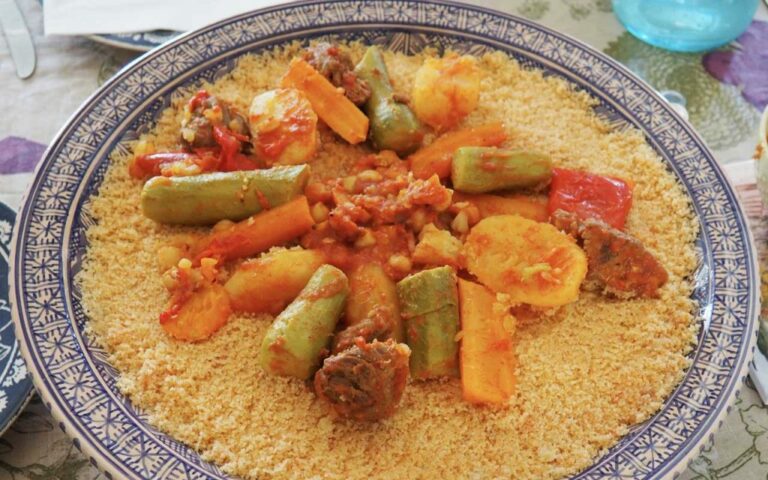Introduction to Tunisian Cuisine
Tunisian cuisine is a blend of Mediterranean and North African flavors and is known for its bold and spicy flavors. The cuisine is influenced by the country’s history of trade and invasions, which has brought a rich diversity of ingredients and cooking techniques.
Tunisian cuisine features a variety of dishes that range from hearty stews and grilled meats to fragrant couscous and vegetable dishes. To achieve the complex flavors that define Tunisian cuisine, a range of seasonings and spices are used in cooking.
The Importance of Seasonings and Spices
Seasonings and spices are a crucial element of Tunisian cuisine. They add depth, aroma, and complexity to dishes, and highlight the unique flavors of the ingredients used in them. Tunisian cuisine uses a variety of spices that range from mild and fragrant to hot and pungent.
Spices are usually used in Tunisian cuisine in the form of spice pastes, blends, or whole spices, which are often toasted or ground before being added to dishes. The key to mastering Tunisian cuisine is to strike the perfect balance of flavors, which is achieved by using the right combination of spices and seasonings.
Harissa – The Iconic Tunisian Spice Paste
Harissa is arguably the most iconic Tunisian spice paste. Made with chili peppers, garlic, cumin, and coriander, harissa is fiery, smoky, and packs a punch. Harissa is used as a condiment, marinade, and ingredient in many Tunisian dishes, including couscous, grilled meats, and stews.
Harissa is also a versatile ingredient that can be used to spice up any dish. It is readily available in stores, but making your own harissa at home is easy and allows you to customize the heat level and flavor to your liking.
Ras El Hanout – The Ultimate Spice Blend
Ras El Hanout is a popular Tunisian spice blend that translates to “head of the shop”. This spice blend typically contains up to 30 different spices and is a staple in Tunisian cuisine. It is often used in stews, rice dishes, and tagines.
Ras El Hanout is a complex spice blend that balances sweet, savory, and spicy flavors. The blend usually includes cinnamon, coriander, cumin, turmeric, ginger, and cardamom, among other spices. Some blends may also contain ingredients like rose petals, saffron, and dried fruits.
Other Common Tunisian Spices and Seasonings
Tunisian cuisine also uses other common spices and seasonings like garlic, ginger, cumin, coriander, paprika, saffron, and mint. These spices are used in different combinations to create unique flavors in various dishes.
Garlic and ginger are often used to add depth to stews and soups, while cumin and coriander are used to add earthy and nutty flavors to couscous and rice dishes. Paprika is used to add smokiness, while saffron is used to add a distinctive golden color and flavor to dishes.
Using Tunisian Spices in Your Cooking
Tunisian spices and seasonings can add a new dimension of flavor to your cooking. To use these spices in your cooking, start with small amounts and gradually increase the quantity until you achieve the desired flavor.
You can also experiment with different combinations of spices to create your own unique blends. Be sure to store your spices in airtight containers to keep them fresh and preserve their flavors.
In conclusion, Tunisian cuisine is a rich and flavorful cuisine that is defined by the use of a wide range of spices and seasonings. Harissa and Ras El Hanout are the most popular spice pastes and blends used in Tunisian cuisine, but there are many other spices and seasonings that are also commonly used. Incorporating Tunisian spices into your cooking can add bold and exciting flavors to your dishes and elevate your culinary skills.

